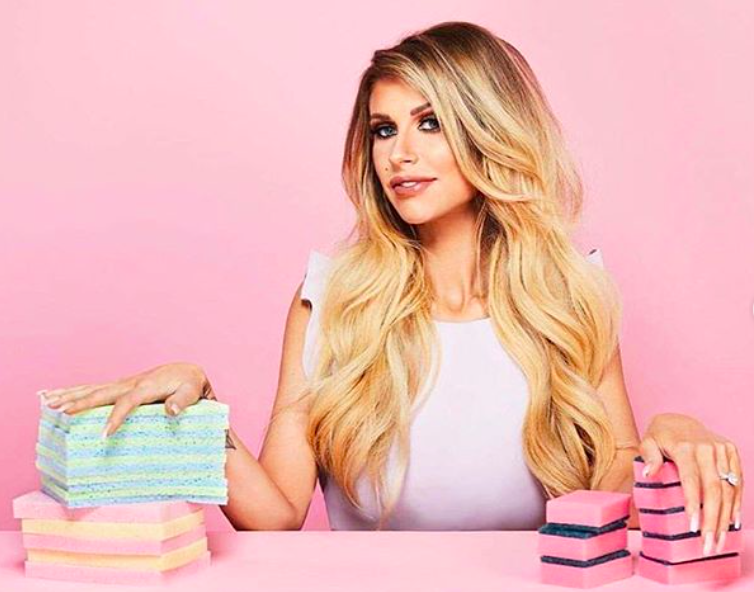Mrs Hinch and Zoella: how internet influencers shot to literary stardom – with a very outdated view of women


Stevie Marsden, University of Leicester
She has a cockerspaniel called Henry and would rather sew than go out clubbing. Barely a year ago, she was an unknown hairdresser from Essex in the south-east of England. Now Mrs Hinch – aka Sophie Hinchliffe – is an internet sensation, famous for her super bubbly cleaning tips and her regular updates about her husband and imminent first child.
Whether Mrs Hinch is a major part of your life or you’ve never heard of her before, the 29-year-old has certainly made her mark. The interior design and cleaning enthusiast, who rarely even appears in her posts, has built more than two million Instagram followers. Her debut book, Hinch Yourself Happy, published on April 4, has become a bestseller on the strength of pre-orders alone. She’s one of numerous social media stars to convert a big online audience into mammoth book sales. So where does this publishing phenomenon go from here?
The new heavyweights
YouTube stars such as Alfie Deyes, Felix Kjellberg (aka PewDiePie) and Zoe Sugg (aka Zoella) have all achieved something similar over the past half decade. Deyes’ first book, The Pointless Book, sold over 100,000 copies in the two months following its release in 2014 and has since grown to three volumes.
Sugg’s debut novel Girl Online, aimed at young adults, was published by Penguin the same year. It beat first week sales records for a debut novel, surpassing writers such as JK Rowling, Dan Brown and EL James. Sugg, who is in a relationship with Deyes, has since followed up with two sequels and a non-fiction book on lifestyle self-improvement called Cordially Invited, which came out last autumn.
Interestingly, Sugg and Hinchliffe share the same management agency, Gleam Futures. Clearly recognising the power of social media celebrity in publishing, the agency founded literary division Gleam Titles in 2017. Here are Sugg and Deyes appearing at the same time, talking about their future together:
Felix Kjellberg, who vlogs on gaming, has a connection with Hinchliffe as well – in 2015 he signed a one-book deal with Penguin’s Michael Joseph imprint, which is publishing Hinch Yourself Happy. Kjellberg’s book is called This Book Loves You, a self-help parody, which reached number one of the New York Times bestseller list. He has also launched computer games and clothing brands, while becoming increasingly controversial for his alt-right views. Most notoriously, his PewDiePie vlog was endorsed by the gunman in the Christchurch mosque attack (Kjellberg hastily distanced himself from the murderer afterwards).
Publishing and celebrity
The jury is out on where PewDiePie goes from here, but these social media stars’ audience numbers are manna to a risk-averse industry such as publishing. Hinchliffe’s Instagram page has grown by 500,000 followers in the first three months of 2019 alone. Her book was only announced in early December following an 11-way auction.
This is just an extension of the same game publishers have been playing with celebrity appeal for decades. Witness, for instance, the way in which children’s publishing has been invaded by the likes of comedians David Walliams and Russell Brand, football manager Frank Lampard and former pop star Tom Fletcher – often to objections from authors who have built up their names the hard way.
Social media celebrities can easily fall prey to the same kinds of criticisms. Sugg’s literary prowess was questioned, for example, when it was revealed that children’s author Siobhan Curham helped write her debut novel. The problem, according to one commentator, when her whole brand had been “built on being authentic”. Sugg ended up taking time away from social media to recover.
Yet Sugg has had another bumpy ride with highly anticipated lifestyle and home tips book Cordially Invited. Pitched as a “blueprint for making an event and a memory out of each day”, the lavishly illustrated hardback received mixed reviews from readers and reviewers. Many saw it as little more than a marketing ploy designed to extract more money from fans.
There’s also something uncomfortable in 2019 about women like Sugg and Hinchliffe building businesses in this lifestyle territory. When Hinchliffe promises to offer readers: “All the best cleaning tips to shine your sink and soothe your soul”, it could be a time machine to the 1950s. It’s similar to TV personality Anthea Turner’s foray into publishing a few years ago – then host of BBC show The Perfect Housewife, Turner released a series of how-to books, such as How to Be the Perfect Housewife – Entertain in Style, and How to Be the Perfect Housewife – Lessons in the Art of Modern Household Management.
It all perpetuates a very old-fashioned and highly problematic view of femininity and domestic labour. It is particularly jarring to see such books emerge via new media, when these platforms have the potential to overturn old norms and ideas. It’s not out of step with the conduct literature of the 18th century, which was dedicated to educating the reader – usually young women – on the social standards of the time.
Publishing remains as susceptible to the celebrity spin-off as it always was. Some imprints will presumably get burned when this influencer-cum-author bubble inevitably bursts. In the meantime, I won’t be enlisting for the Hinch Army. It’s funny how you can join platforms such as Instagram in search of the future and find yourself catapulted back to the past.
Stevie Marsden, Research Associate, CAMEo Research Institute for Cultural and Media Economies, University of Leicester
This article is republished from The Conversation under a Creative Commons license. Read the original article.





